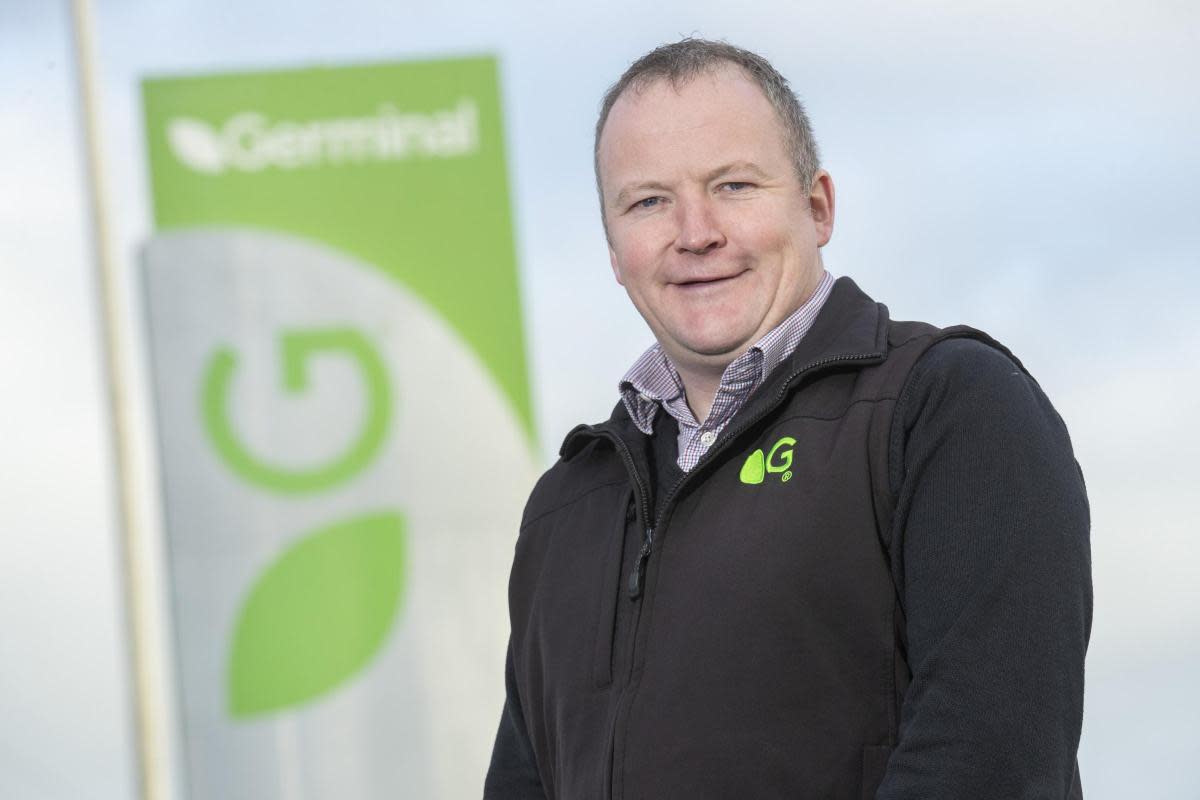Farmers need to embrace clover in sward

Clover incorporation into grass swards is a win-win for farmers as it not only reduces costs by saving on fertiliser purchases but also reduces carbon emissions.
The role of clover in reducing dependence on nitrogen fertilisers in multispecies grazing systems was outlined recently by Dr. Mary McEvoy, Germinal’s Technical Director.
Speaking at a recent British Society of Animal Science (BSAS) conference in Belfast, she told delegates: “Pasture-based agriculture is facing challenges, including achieving reductions in environmental emissions, reducing nitrogen fertiliser use, improving water quality and maintaining food security.
“In 2021, agriculture accounted for 33 per cent of total greenhouse gas (GHG) emissions in the Republic of Ireland and 28 per cent in Northern Ireland.
“Following the abolition of milk quotas, emissions have risen to just beyond the 1998 previous peak in ROI of 22.93 MtCO2eq. to 23.09 MtCO2eq. in 2021. Overall emissions from agriculture have grown by 19 per cent in the last decade, and currently we have about one-third of technologies we need to meet a 25 per cent reduction target.”
So, what further measures can the agricultural sector take to reduce emissions and maintain food production? Dr. McEvoy says both white and red clover have a significant role to play.
“An almost trebling of fertiliser prices in 2022 due to the war in Ukraine encouraged many farmers to look again at what could be achieved with clover. They found that clovers have a lot to offer. In our view, clover varieties are the most important part of a multi-species sward. But we need to create the conditions to allow them perform in the sward to maximise their contribution in both animal performance and emissions reductions.
“Research has consistently shown that the inclusion of clover in swards using very low levels of artificial nitrogen fertilisers will achieve the same level of production as grass-only swards getting up to 250 kg of nitrogen fertilisers per hectare. But we’ve been slow to promote the adoption of clover swards at farm level. We now need to trust the science and let it guide us.
“Red clover for silage also has huge value, reducing artificial N inputs, increasing homegrown protein and reducing the need for soya imports. It produces a high-quality feed and will be a real benefit on Irish farms. Multi-species swards, some of which include clover and herb varieties, also bring real benefits to soil health, including the development of soil microbes and fauna populations that improve soil structure and are critical to sustainable agriculture into the future,” she said.
Germinal is a 6th generation family business headquartered in Belfast which is focused on providing climate-smart farming and food solutions by developing new plant varieties and technologies to support profitable, efficient and sustainable grass-based livestock farming.
Germinal Horizon comprises research scientists and agricultural production specialists at world-leading grassland research centres at Aberystwyth University’s Institute of Biological, Environmental and Rural Sciences (IBERS) in Wales, and at its research stations in Wiltshire and at Broadfield, New Zealand.
Germinal also recently announced that David Little, well known throughout agricultural circles here, has been appointed Agricultural Product Manager for Ireland. This appointment marks a significantly enhanced role within Germinal and will see him carry out the responsibilities of his new position alongside his current Northern Ireland Sales Manager role.
In his expanded role as Agricultural Product Manager, David will retain responsibility for sales to his existing customers and oversee the supply and stocks of agricultural products across both Northern Ireland and the Republic of Ireland

 Yahoo News
Yahoo News 
